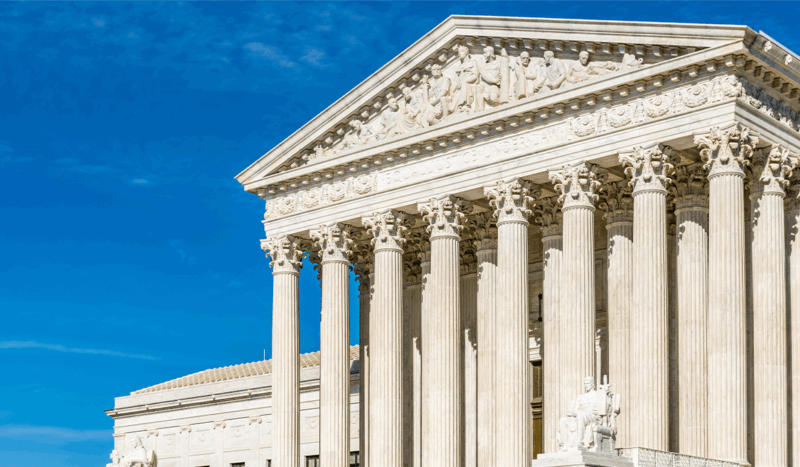
Adobe Stock
The U.S. Supreme Court effectively stopped the opening of the nation’s first religious charter school in Oklahoma in a deadlocked 4-4 decision Thursday morning.
The brief, two-sentence ruling merely stated that the Oklahoma Supreme Court’s previous judgment, which struck down the proposal to open St. Isidore of Seville Catholic Virtual School, “is affirmed by an equally divided Court.”
CatholicVote previously reported that several courts and Republican Oklahoma Attorney General Gentner Drummond, have ruled against or opposed the public-funded Catholic school from the start, claiming that it violated the separation of church and state. Drummond sued to stop the school from opening in 2023.
The Supreme Court’s ruling did not indicate how each justice had voted, but noted that Justice Amy Coney Barrett had recused herself from the case. Media speculate that her ties with Notre Dame Law School and a close friendship with former colleague Nicole Stelle Garnett, who was an early advisor for St. Isidore, is a factor in her recusal.
The ruling comes only a few weeks after several Supreme Court justices appeared sympathetic to St. Isidore during an April 30 hearing, as CatholicVote previously reported. Justice Brett Kavanaugh had indicated that excluding the Catholic school from Oklahoma’s charter school program is religious discrimination, reportedly saying “You can’t treat religious people and religious institutions and religious speech as second-class in the United States.”
“And when you have a program that’s open to all comers, except religion… that seems like rank discrimination against religion,” he added, with Justice Samuel Alito raising similar concerns.
Liberal justices, including Justice Elena Kagan and Justice Ketanji Brown Jackson, expressed opposition to St. Isidore, saying that charter schools are under state control.
While there is no precedent for the case, Alliance Defending Freedom (ADF), a Christian legal nonprofit that represented St. Isidore, said that the Supreme Court’s ruling does not establish a precedent either.
“While the Supreme Court’s order is disappointing for educational freedom, the 4-4 decision does not set precedent, allowing the court to revisit this issue in the future,” ADF Chief Legal Counsel Jim Campbell stated in a news release.
He added, “The U.S. Supreme Court has been clear that when the government creates programs and invites groups to participate, it can’t single out religious groups for exclusion, and we will continue our work to protect this vital freedom for parents and students.”
CatholicVote reported earlier this month that Philip Sechler, senior counsel and director of ADF’s Center for Free Speech, wrote in an article published by the National Review that the St. Isidore case is historic in understanding the clauses of the First Amendment as working in harmony, rather than in disunity.
“The matter at hand is how we view the First Amendment itself,” he wrote. “Do the establishment clause and free exercise clause work in tension with one another? Or do they work in tandem, requiring that religious groups be treated just like secular groups when they apply to operate a charter school in Oklahoma but without establishing that group’s faith as the state’s official religion?”
In his article, Sechler also pointed to Justice Neil Gorsuch’s ruling in Kennedy v. Bremerton, a 2022 Supreme Court decision that affirmed a high school coach’s right to pray publicly.
Gorsuch said that these “Clauses appear in the same sentence of the same Amendment. . . . A natural reading of that sentence would seem to suggest the Clauses have ‘complementary’ purposes, not warring ones where one Clause is always sure to prevail over the others.”
Sechler argued that the same principle applied to the St. Isidore case.
CatholicVote previously reported that the proposed school was to be operated under the Archdiocese of Oklahoma City and the Diocese of Tulsa, incorporating Catholic teaching into its curriculum and operating as a faithful Catholic school. As a charter school, St. Isidore would have received taxpayer funding but operated privately, unlike a public school, which receives federal funds and does not operate independently.
Prior to Drummond’s suit, Republican Gov. Kevin Stitt and the Statewide Virtual Charter School Board had initially approved St. Isidore in 2023.

